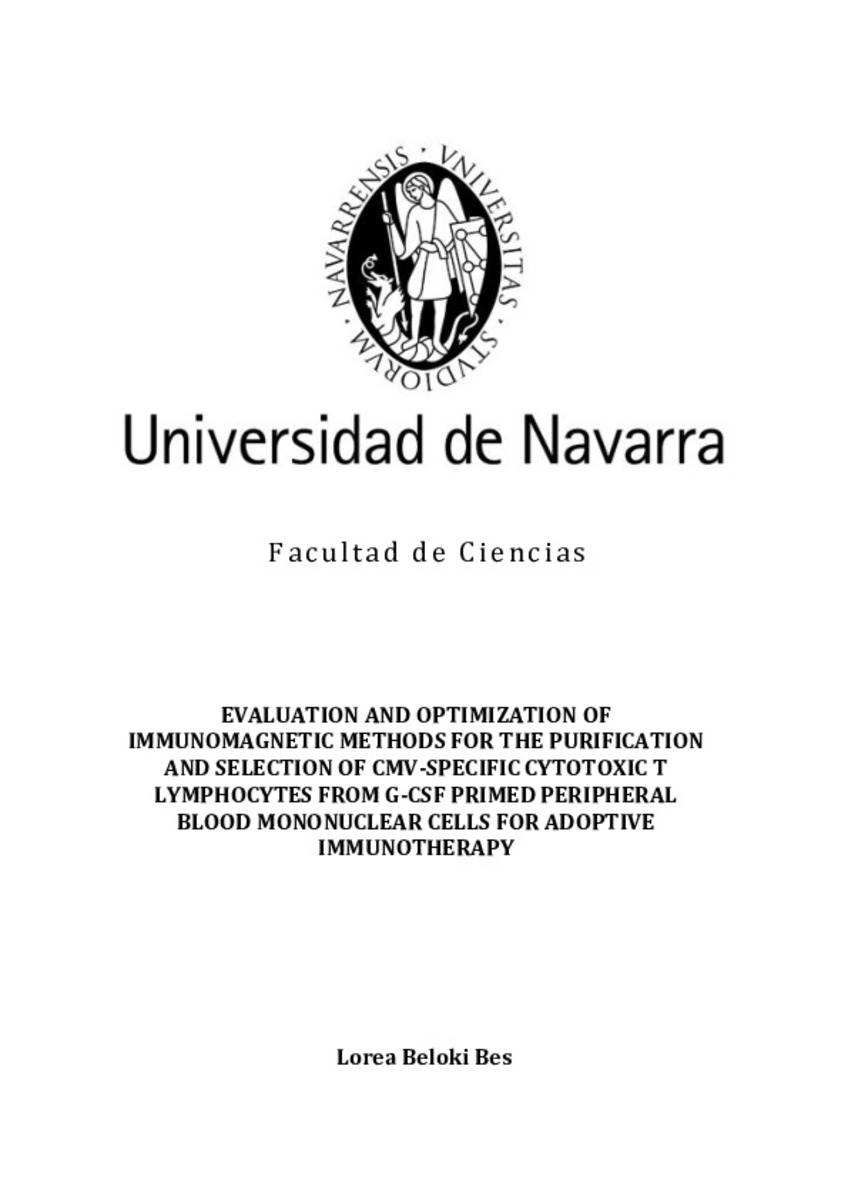Evaluation and optimization of immunomagnetic methods for the purification and selection of CMV-specific cytotoxic T lymphocytes from G-CSF primed peripheral blood mononuclear cells for adoptive immunotherapy
Palabras clave :
Materias Investigacion::Ciencias de la vida
Transplante de órganos
Inmunología
Fecha de publicación :
2015
Fecha de la defensa:
13-dic-2014
Editorial :
Servicio de Publicaciones de la Universidad de Navarra
Cita:
BELOKI BES, Lorea. “Evaluation and optimization of immunomagnetic methods for the purification and selection of CMV-specific cytotoxic T lymphocytes from G-CSF primed peripheral blood mononuclear cells for adoptive immunotherapy”. Olavarría, E. y Ramírez, N. (dir.). Tesis doctoral. Universidad de Navarra, Pamplona, 2014
Aparece en las colecciones:
Estadísticas e impacto
0 citas en

0 citas en

Los ítems de Dadun están protegidos por copyright, con todos los derechos reservados, a menos que se indique lo contrario.







